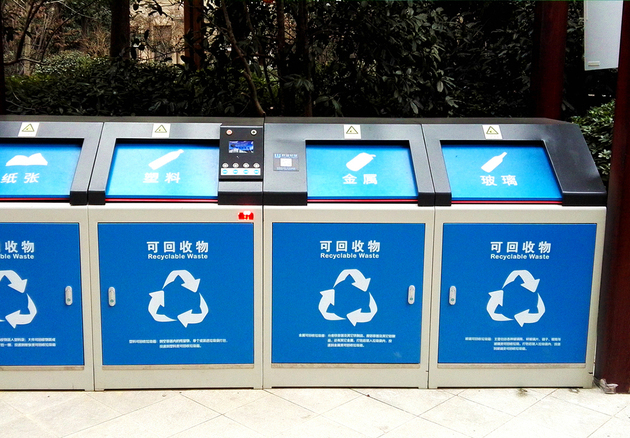
Photo/VCG
Apr. 19 (NBD) -- China's Ministry of Ecology and Environment (MEE) announced on Thursday that China will ban imports of additional 32 types of solid waste. The announcement was made jointly with the Ministry of Commerce, the National Development and Reform Commission, and the General Administration of Customs.
Sixteen types of solid waste such as scrapped ships, compressed car scrap will be banned from importing, beginning Dec. 31, 2018.
Imports of another 16 types of solid waste including stainless steel scrap and titanium scrap will be also be banned, starting from Dec. 31, 2019.
Liu Youbin, spokesman for the MEE, said that to ban or restrict the imports of solid waste goes in line with the country's new development philosophy and is a move to protect the environment, secure the country's ecosystem and safeguard people's health. Liu underlined that the MEE will execute the policy to the letter and strictly prohibit the imports of solid waste.
The list is an extension to 24 types of solid waste including waste plastics which was banned from being imported last year. In 2017, China decided to phase out imports of solid waste in order to reduce environmental pollution.
Wang Yonggang, secretary general of the China Plastic Recycling Association told NBD in an interview that the new list means imports of waste plastics, household or industrial, are banned.
According to Wang, nearly 1/3 of waste plastics come from foreign sources with each year more than 7 million tons are imported. The amount of waste imports has become less since last year. The gap of the 7-million-ton imports can be filled by increasing the recycling amount in China and importing plastic pellets rather than waste plastics, Wang noted.
The domestic market is highly adaptable and the move will benefit the recycling industry in the domestic market, Wang added.
Liu Xuesong, deputy general manager of Beijing-based Incom Resouces Recovery Resourcing Co. Ltd told NBD that the price of waste drink bottles has saw some increase since last year due to a shortage of plastic materials. The industry may feel the hit in the short term, but in a long run, there will be no problem with plastics supply, Liu said.
Liu believed that the imports ban provides an excellent chance for the domestic recycling industry to develop. He called to carry out an advanced deposit for beverage package which was practiced in some countries. Consumers get the refund after they return the packages to specific locations. Such practice will improve the recycle efficiency of solid waste and other resources, Liu commented.
Wang Yonggang held that regulatory rules haven't yet been established in China and pollutions may arise in the course of recycling. Solid waste should be guided to legitimate recycling enterprise by enforcing supervision, he suggested.
Email: tanyuhan@nbd.com.cn


 川公网安备 51019002001991号
川公网安备 51019002001991号





